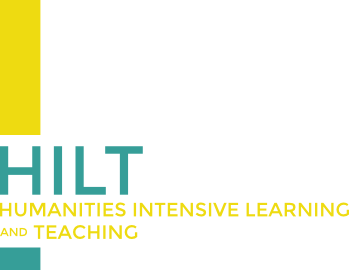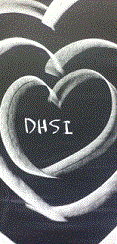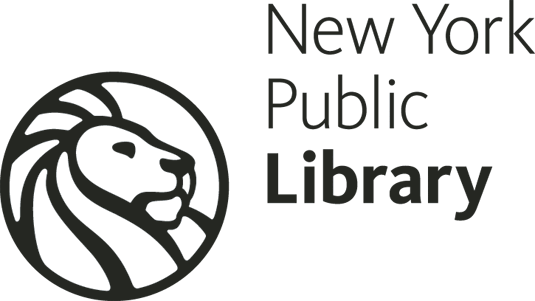Meet The Instructors
Hannah Aizenman
Hannah Aizenman is a doctoral student in Computer Science. Her research is in using machine learning to make sense of and visualize large, mostly climate, datasets. She was an adjunct at CCNY for the past 5 years, mostly teaching engineers how to program. For the past 3 years, she has taught and mentored high school students for the CREST HIRES REU program. She’s spoken at a couple of Python conferences, is on the planning committee of the AMS Python Symposium, and is an organizer for the New York Linux Users Group (NYLUG).
Patrick Smyth
Patrick Smyth is a fourth-year doctoral student in English. His research focuses on Utopian thought and the history of science in 18th and 19th century British literature. As a digital humanist, Patrick is concerned with digital platforms for research and pedagogy. He is currently a developer on the NEH-funded DH Box, a cloud-based platform for accessing digital humanities tools, and has received a Provost's Digital Innovation grant for an online archive of science fiction works. His most recent publication is “Ebooks and the Digital Paratext: Emerging Trends in the Interpretation of Digital Media” in Examining Paratextual Theory and Its Applications in Digital Culture. Patrick was a 2010 Fulbright Teaching Fellow in Berlin, Germany, and teaches composition and literature at Queens College.
Michelle Johnson-McSweeney
Michelle Johnson-McSweeney is a doctoral candidate in Linguistics. Her research is on the texting patterns of bilingual adolescents, and what that can reveal about digital communication as its own language variety, second language acquisition, and academic literacy. She is currently researching how intimacy is established through text message.
With the Digital Fellows, she coordinates the Workshop series and instigated the Python Users’ Group. She created an interactive infographic illustrating how the languages spoken in NYC are represented along the subway lines for the Interactive Technology and Pedagogy Certificate. Additionally, she worked in the Second Language Acquisition Lab on developing computer-based assessments and teaching materials for Long Term English Learners and Students with Interrupted Formal Education.
Prior to starting her PhD, was a Peace Corps Volunteer in Uganda, taught Math in the TRiO Program at Lansing Community College, and ran a non-profit (Lansing Voters Matter) to increase voter turnout in the Greater Lansing Area.
Micki Kaufman
Micki Kaufman is a fifth-year doctoral student in US History at the CUNY Graduate Center and Director of Information Systems at the Modern Language Association (MLA). She earned her MA in US History from the Graduate Center in 2013 and her BA in US History summa cum laude from Columbia University in 2011.
Micki’s doctoral dissertation, "'Everything on Paper Will Be Used Against Me:' Quantifying Kissinger," involves the application of text analysis and visualization techniques to the study of the American statesman's diplomatic correspondence from 1968-1977, most notably the National Security Archive's Kissinger Collection.
She speaks frequently on digital humanities, data visualization, text analysis and historical interpretation, including panels at DH2015 in Sydney, Australia, MLA2016 and AHA2016 (the Modern Language Association and American Historians' Association 2016 annual meetings).
Micki has been elected to serve on the Executive Council of the ACH (Association for Computers in the Humanities) starting in 2016, is a CUNY GC Digital Fellow ex officio, and a former project manager of the ‘CUNY Academic Commons’ and ‘Debates in the Digital Humanities’ Web sites. She is a four-time winner of the CUNY Graduate Center’s yearly Provost’s Digital Innovation Grant, and a recipient of ACH’s 2015 Lisa Lena Prize and ADHO’s 2015 Paul Fortier Prize for best paper by a new and emerging scholar.
Mary Catherine Kinniburgh
I am a GC Digital Fellow and PhD student in English at The Graduate Center, where I currently study medieval literature, textual criticism, and digital humanities. My digital work takes many forms, from geospatial mapping to critical editing. I worked with the University of Virginia Press’ Electronic Imprint, ROTUNDA, on Archipedia, and served at Columbia University Libraries as a Digital Fellow in theDigital Social Sciences Center’s Data Service. I am a digital communications consultant for Lost and Found: The CUNY Poetics Document Initiative, and co-editor of Gregory Corso’s lectures at Naropa for Lost and Found’s Series VI. In my work as a GC Digital Fellow, I build community digitally and in-person. I coordinated the first annual “CUNY DHI: Building a Digital Humanities Community at the City University of New York,” and promote digital skill-building through the CUNY Strategic Investments Initiative Grant as budget manager.
Jennifer Shelton
Jennifer Shelton is a Bioinformatics Analyst who joined the NYGC September 2015. Jennifer studied genomics applications, chromosome and genome analysis, and bioinformatics as a Master's student at Kansas State University. After earning her degree she became the K-INBRE Bioinformatics Core Outreach Coordinator where she collaborated with scientists at BioNano Genomics to develop workflows to assemble physical maps or order/orient sequence assemblies with single molecule maps. She is also interested in open science and an active Software Carpentry and Data Carpentry Instructor. At the NYGC she works on de novo genome assembly projects for non-model organisms for Senior Bioinformatics Scientist, Andre Corvelo.
Keith Ma
Keith Ma is a Scientific Programmer with Boston University Research Computing Services. In this role, he works with BU faculty and graduate students to develop/optimize/parallelize scientific software, particularly as they scale up from laptops to supercomputers, and teaches introductory tutorials for popular programming languages and applications. Keith's own research background is in geology and geophysics. He is currently a PhD candidate at Yale University, where he studies the impact of glacial erosion on mountain size and shape over the past ~6 million years. Prior to his PhD work, Keith taught high school English a Princeton-in-Asia teaching fellow in Taichung, Taiwan.
Evan Misshula
I am the Project Manager of the NYC Tech Talent Pipeline @ Queens College and an adjunct professor Computer Science in the MA in Digital Forensics at CUNY John Jay where I teach network security. As a student, I am finishing a PhD in Criminal Justice at the CUNY Graduate Center where I am evaluating the effectiveness of a public health intervention to reduce shootings in NYC. I was most recently a substitute lecturer in Computer Science and advisor to Computer Science Club at John Jay.
I served as a CUNY John Jay Presidential Fellow where I worked on the Misdemeanor Justice Project. I have been a winner of the Provost's Digital Innovation Grant and a Digital Fellow. I was a fellow at Data Science Summer Institute at the University of Illinois Urbana-Champaigne funded by the Department of Homeland Security in 2009 and a fellow at the Data Science for Social Good at the University of Chicago in 2013 funded by the Eric and Wendy Schmidt Family Foundation.
I mentor for the College Initiative, a project which helps people returning from prison access higher education. I am an active member of many meetups in NYC and have presented at the Emacs, D3js and NYC Python meetup. I was part of teams that won the ATT Wireless Hackathon for Good in September 2015 and the HeatseakNYC's HackForHeat in December 2015.
Ian Phillips
Ian Phillips is a doctoral candidate in the Linguistics Program at CUNY Graduate Center. His research interests span second language acquisition, multilingualism, sentence processing, learnability theory, and new roles for technology in education. His current research uses the event-related potential technique (ERP) to investigate the Spanish of second immigrant generation Spanish-English bilinguals (aka Spanish heritage speakers) in New York City. For the Interactive Technology and Pedagogy (ITP) certificate program, Ian is developing an original web-based application to aid beginning linguistics students in learning linguistic principles and practices. The app is called The Linguist’s Kitchen and provides the space, tools, and recipes for students to “cook” and analyze language data collected from their own communities. Ian also teaches various courses in language and society at City College as well as language learning and teaching at Hunter College and works in the Second Language Acquisition Lab at the GC.
Patrick Sweeney
Patrick Sweeney is a doctoral candidate in Psychology at the Graduate Center, City University of New York (CUNY); and a Digital Fellow at the Graduate Center Digital Scholarship Lab. As a part of his role as a Digital Fellow, he is a faculty liaison to the New Media Lab. He also is a graduate student representative to the Executive Committee of the Society for Qualitative Inquiry in Psychology. His dissertation explores the complementary application of computer assisted text analysis and discourse analysis to study how scientific theories about the etiology of homosexuality have become part of public discourse and used in arguments to expand or contract the scope of justice. His research interests include moral inclusion, citizenship, queer theory, qualitative methods, digital media, and critical psychology. Prior to becoming a Digital Fellow, Patrick taught psychology at Hunter College, CUNY; and was a Writing Across the Curriculum Fellow at Kingsborough Community College, CUNY.
Stephen Zweibel
Stephen Zweibel is the Data and Digital Projects Librarian at CUNY Graduate Center and the lead developer of the NEH-funded DH Box, a digital humanities laboratory in the cloud. As a library systems specialist, Stephen focuses on emerging technologies for reference and data management, with a particular focus on APIs, web apps, and flexible distributions. His previous projects include Augur, a web app that tracks statistics about library reference desk interactions, and Know Thy Shelf, a radio frequency identification (RFID)-based inventory management system for libraries.




